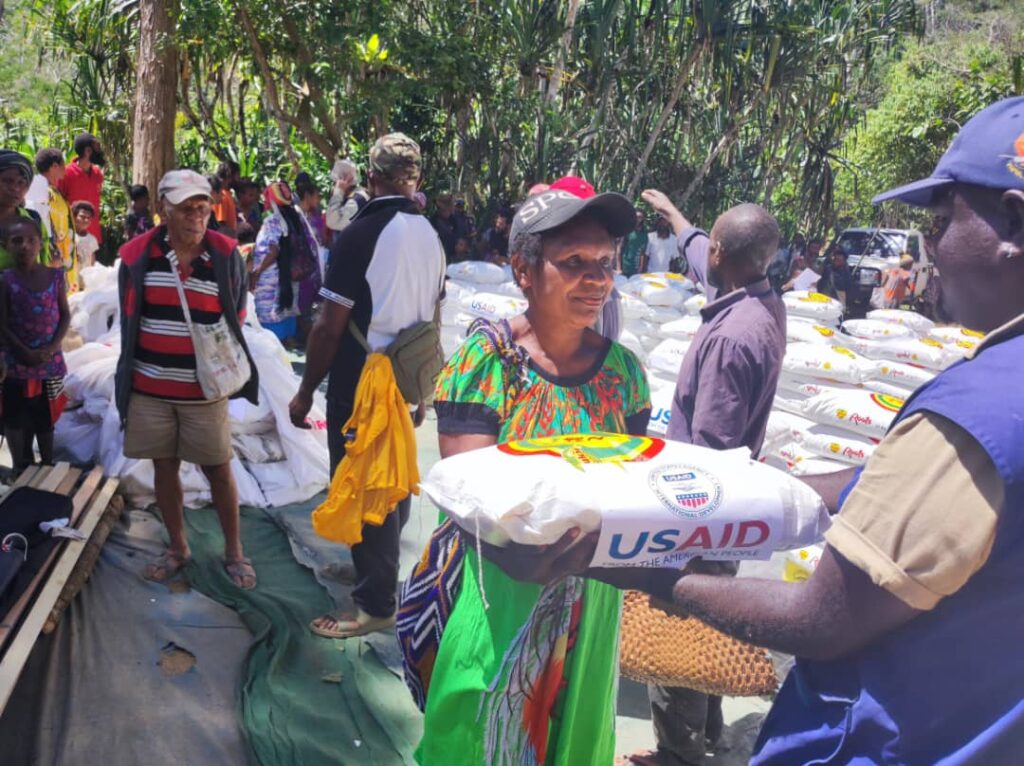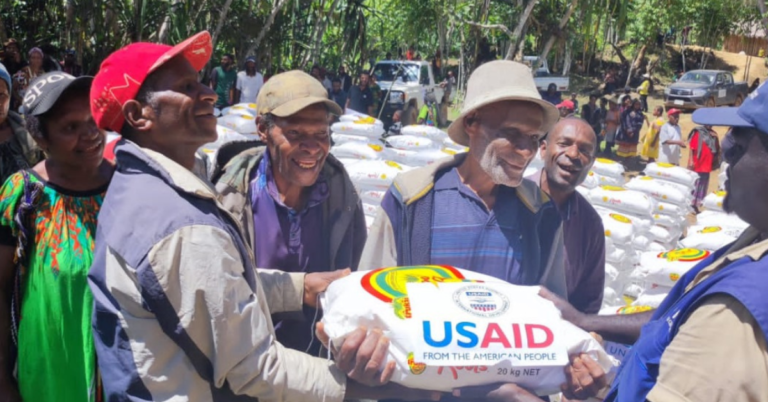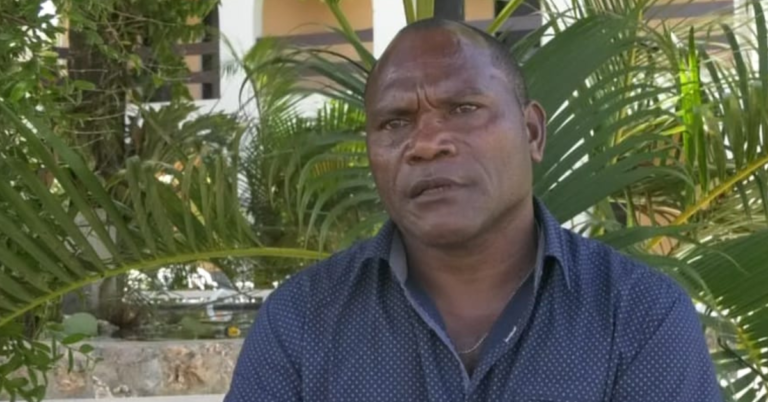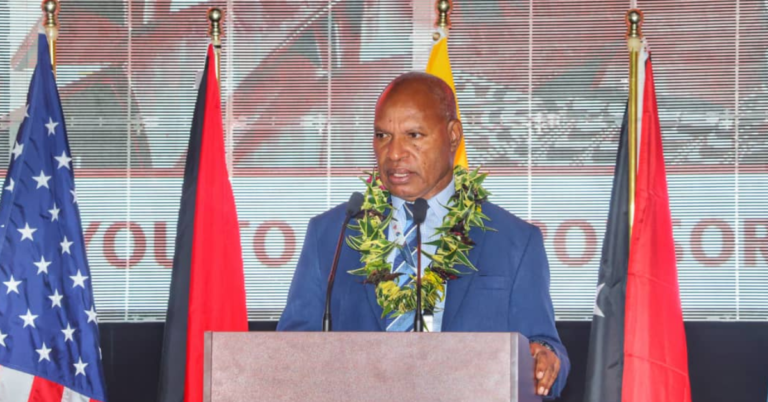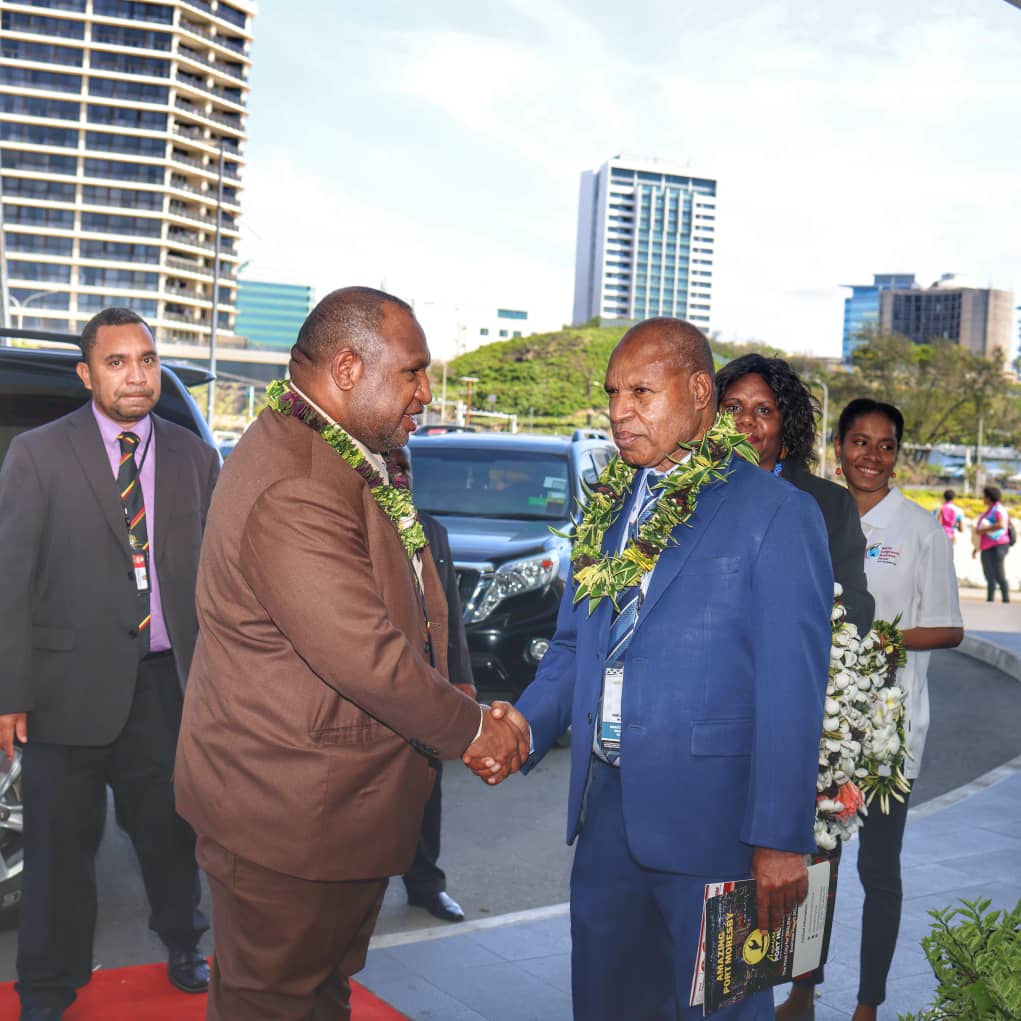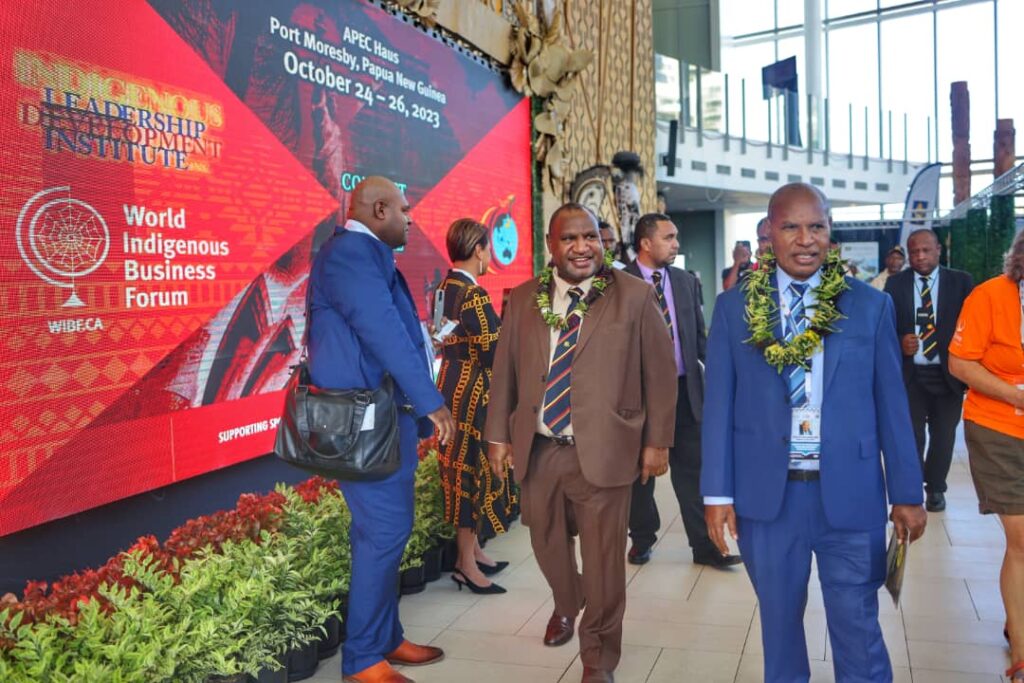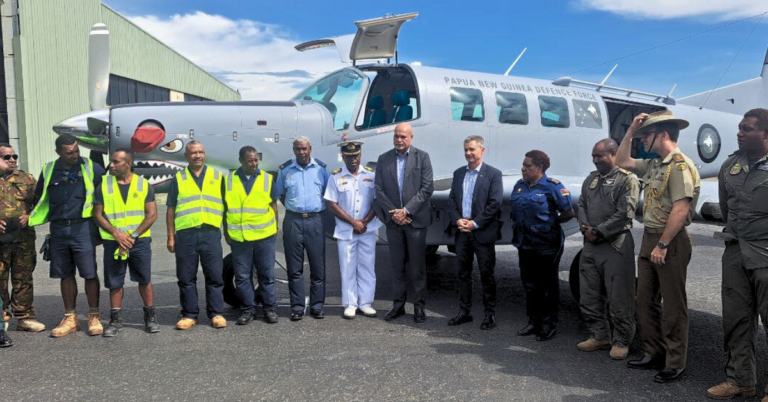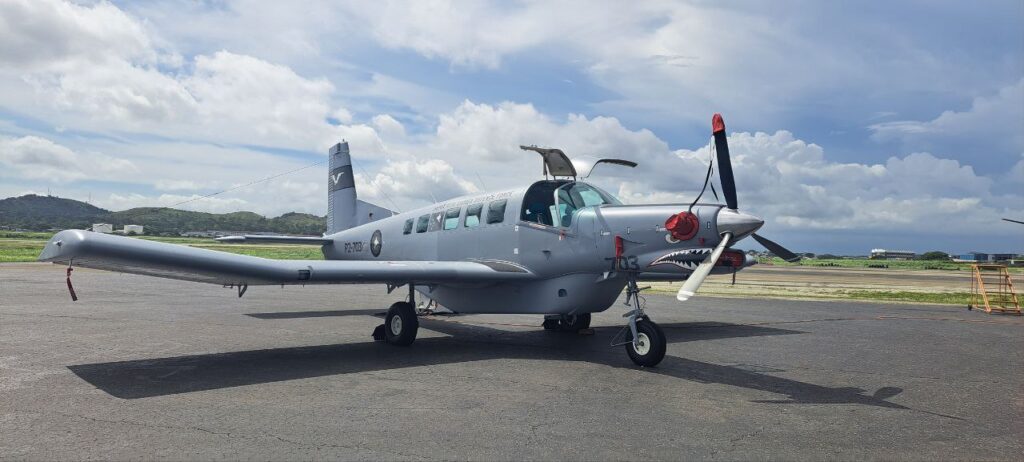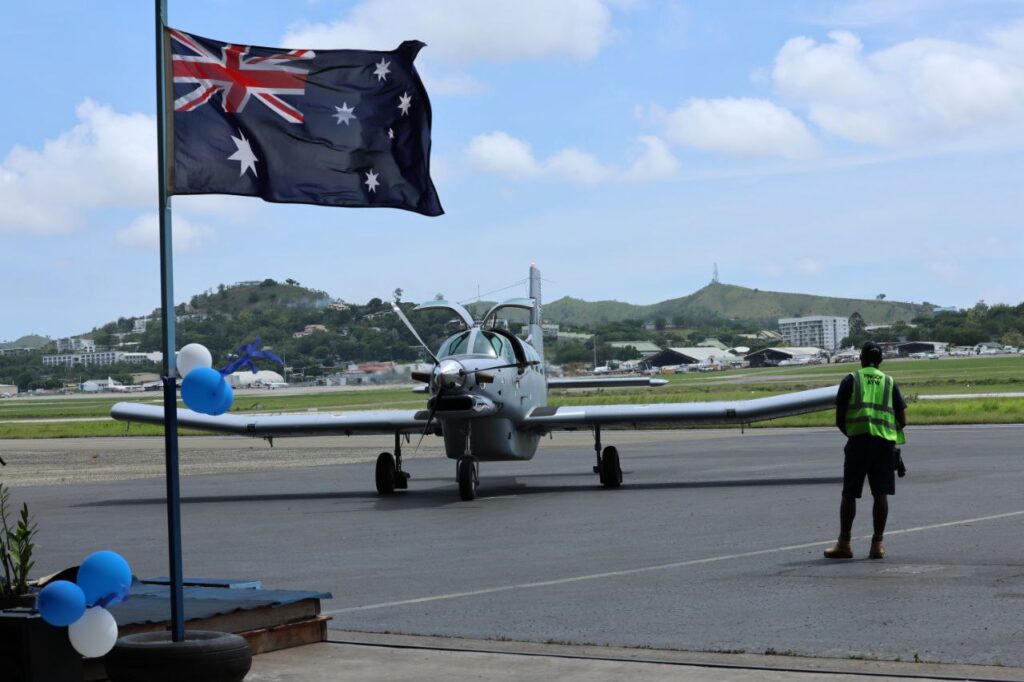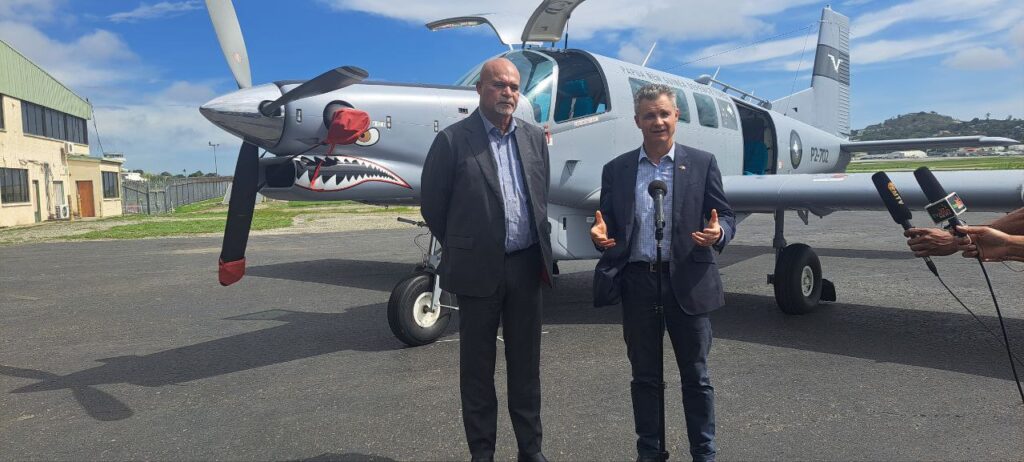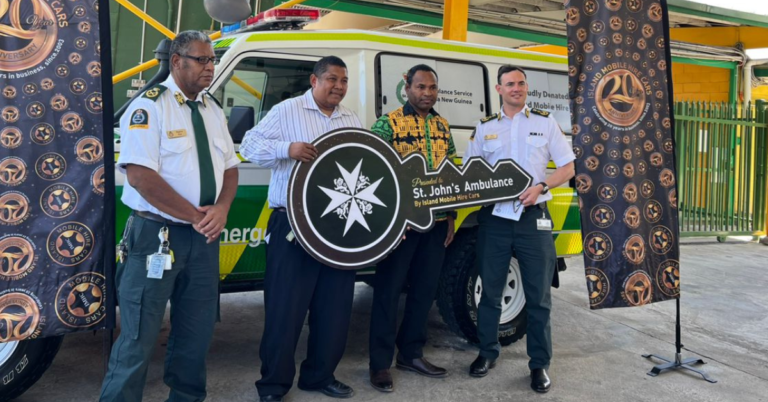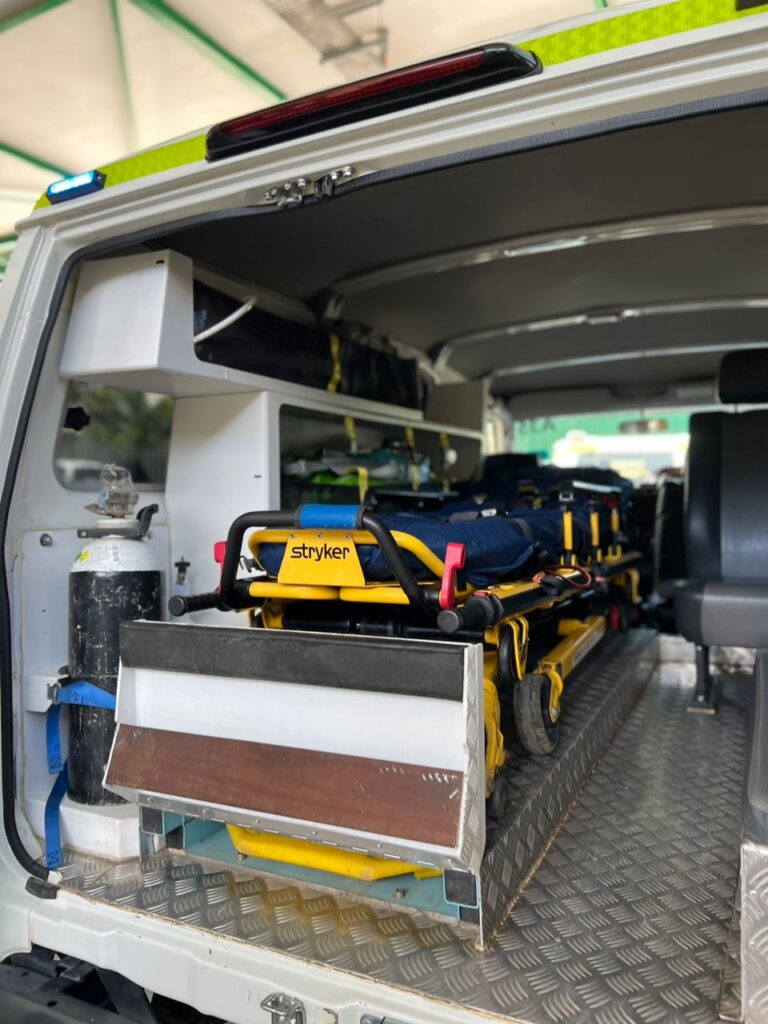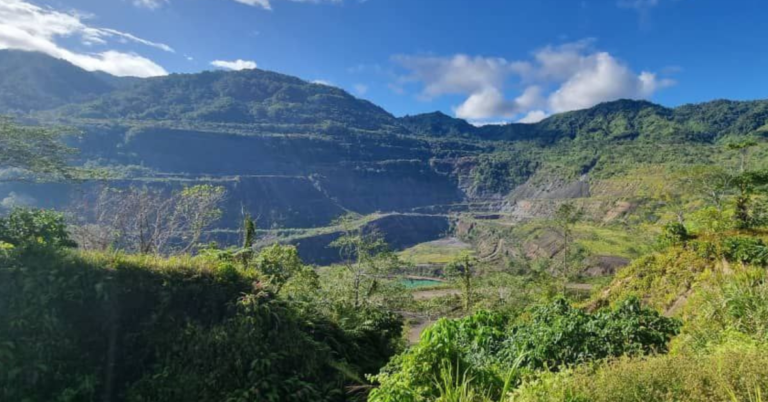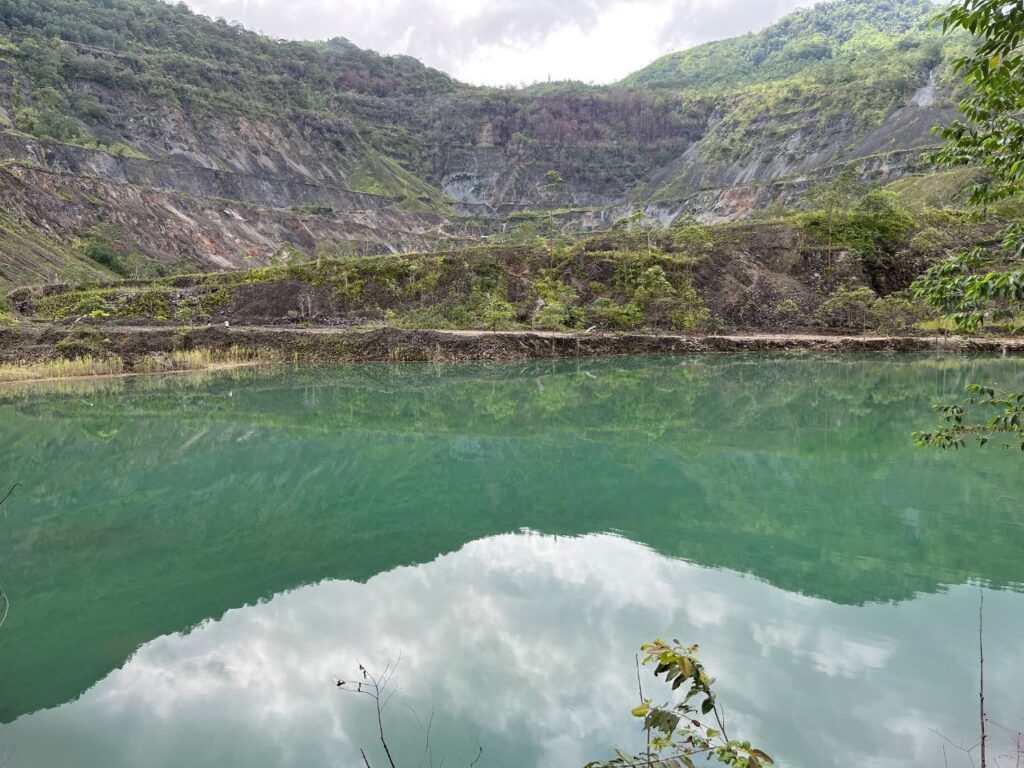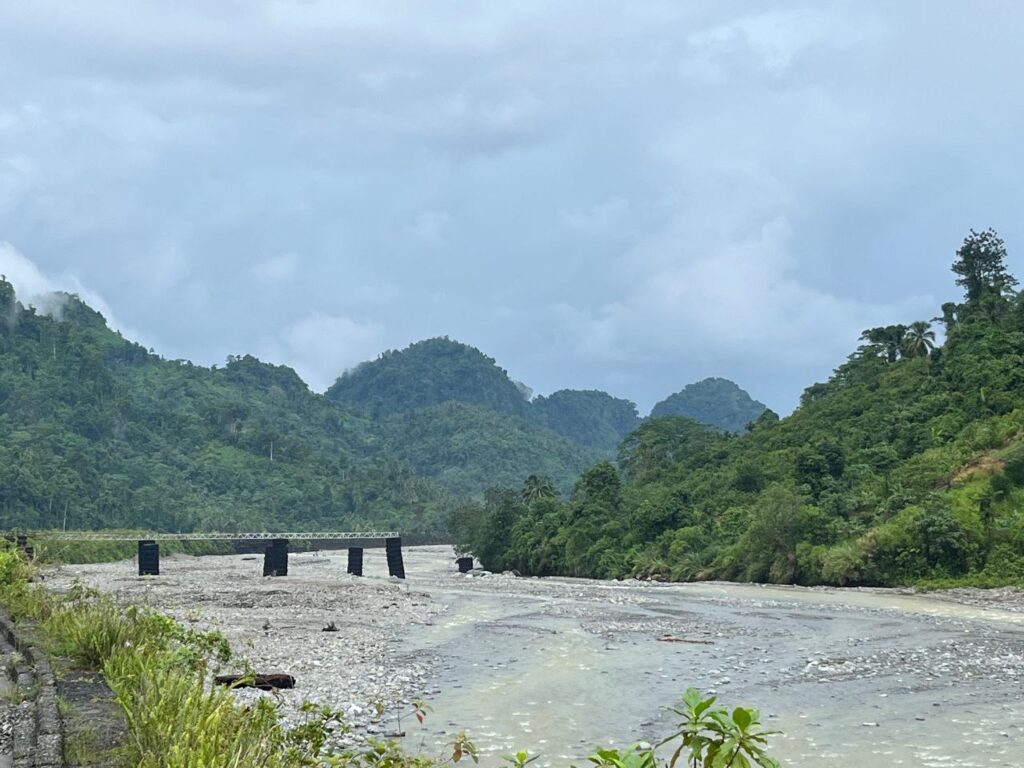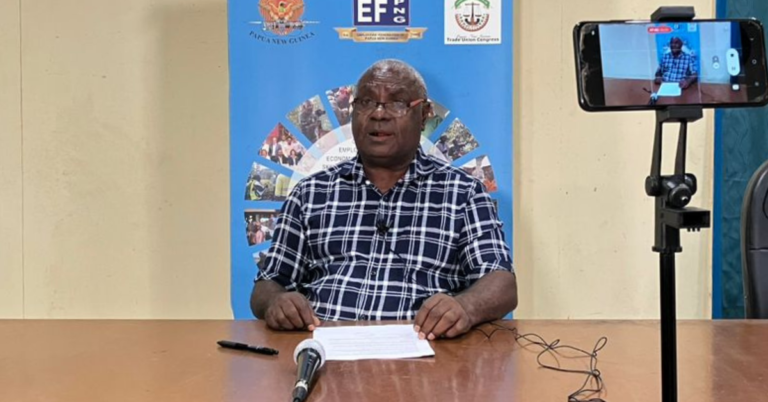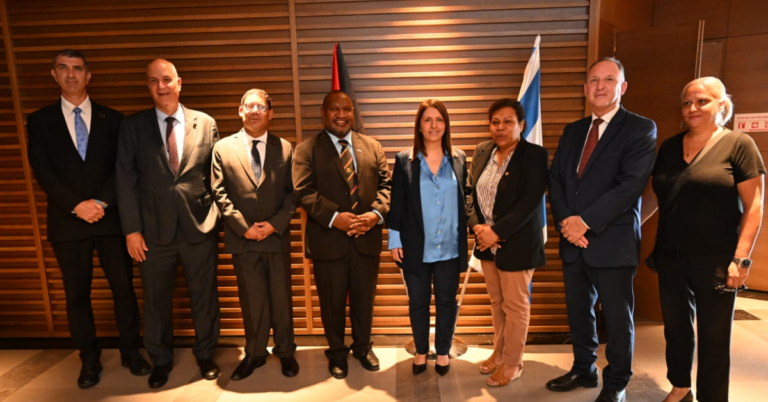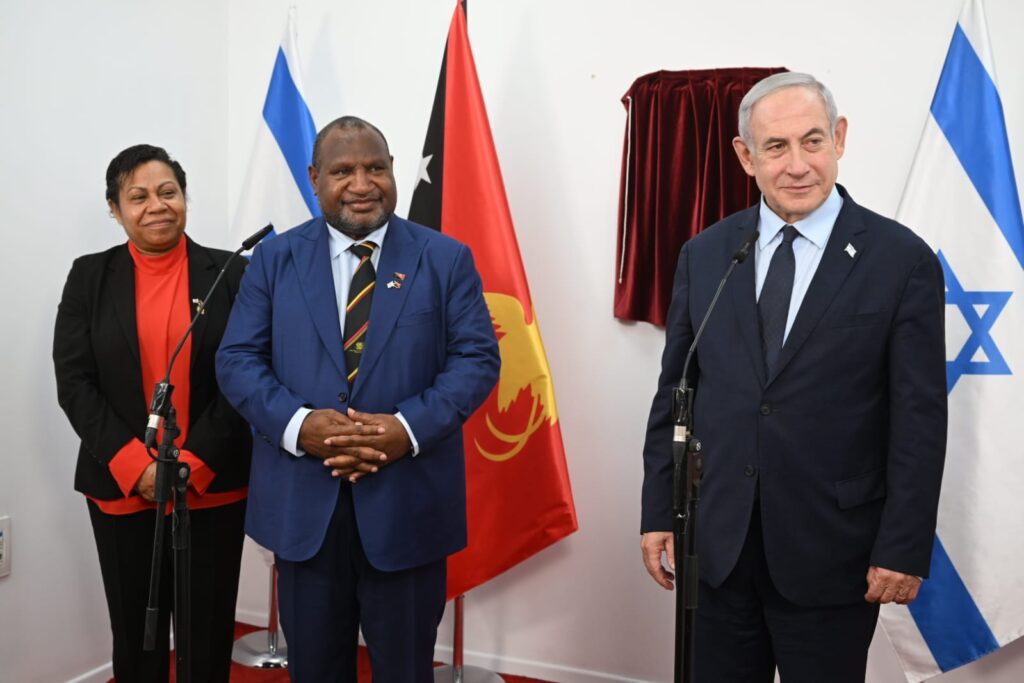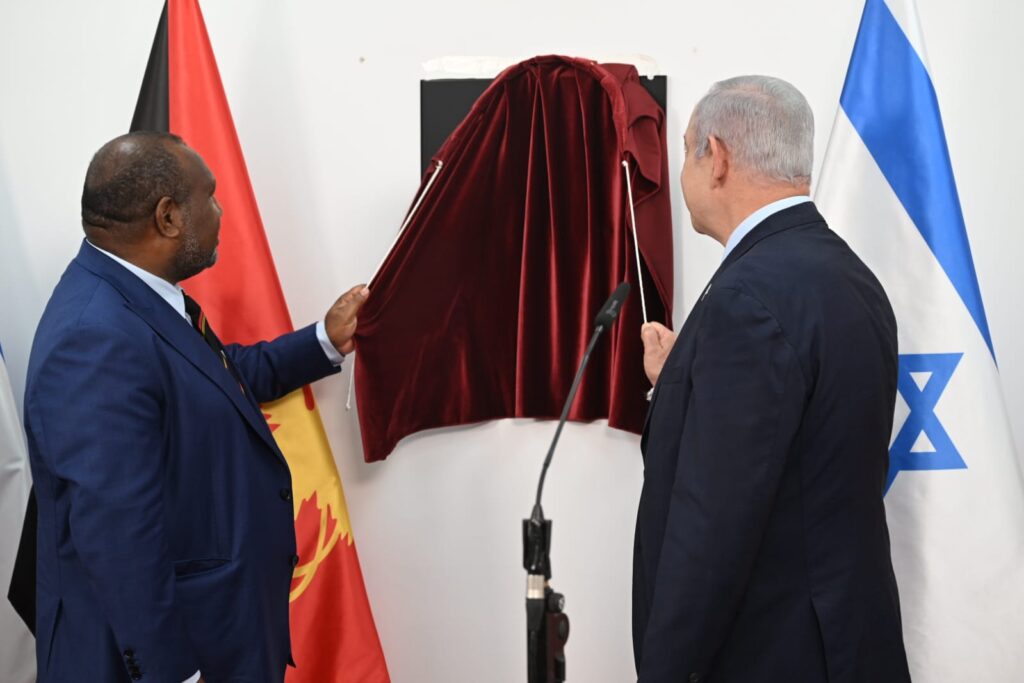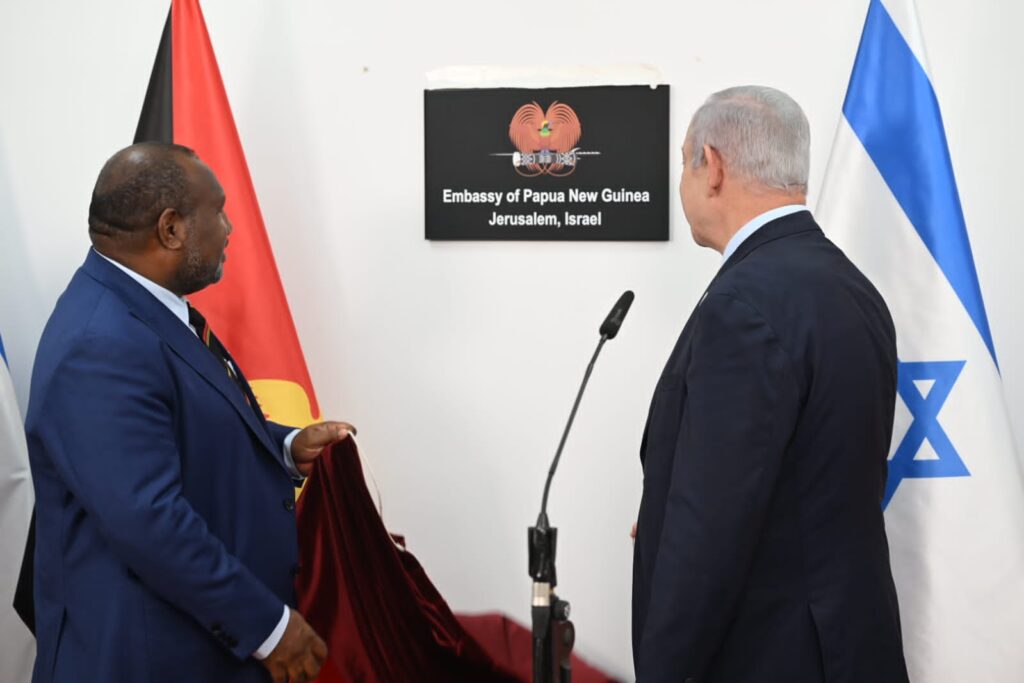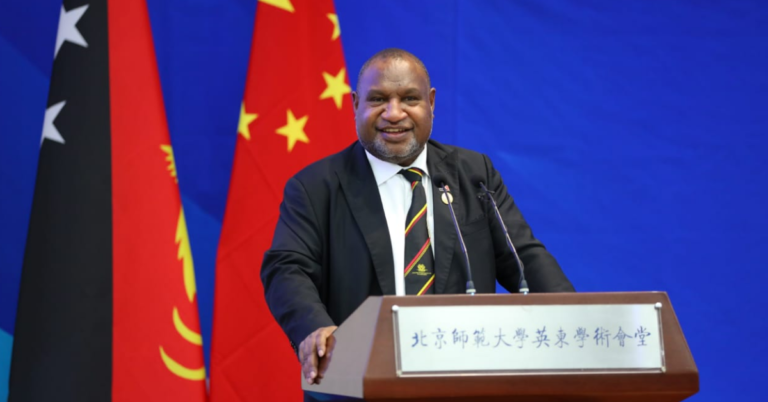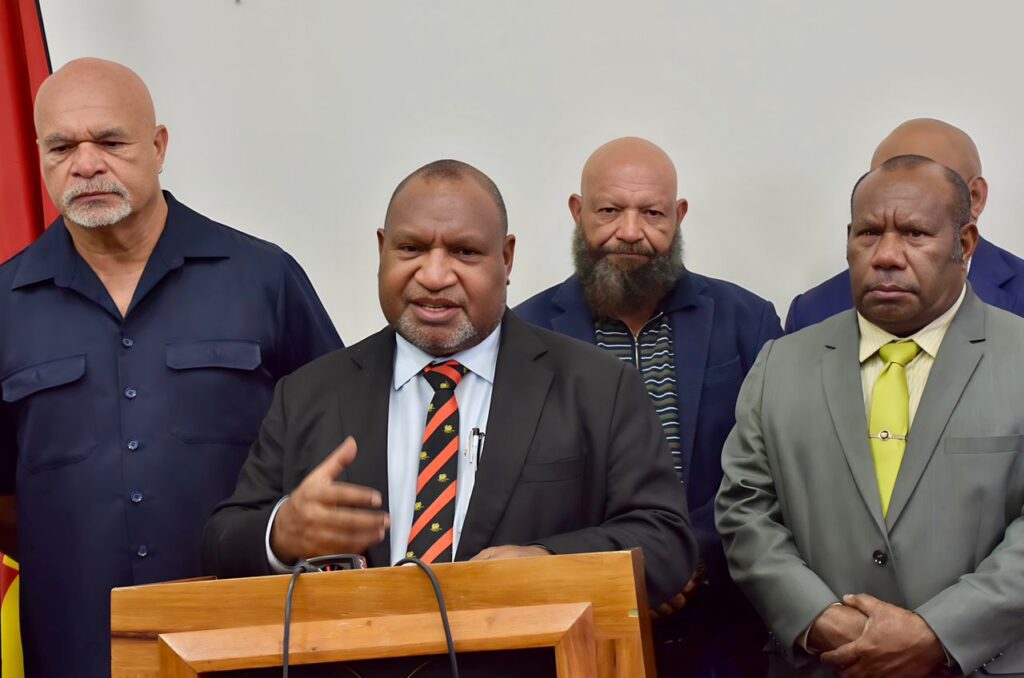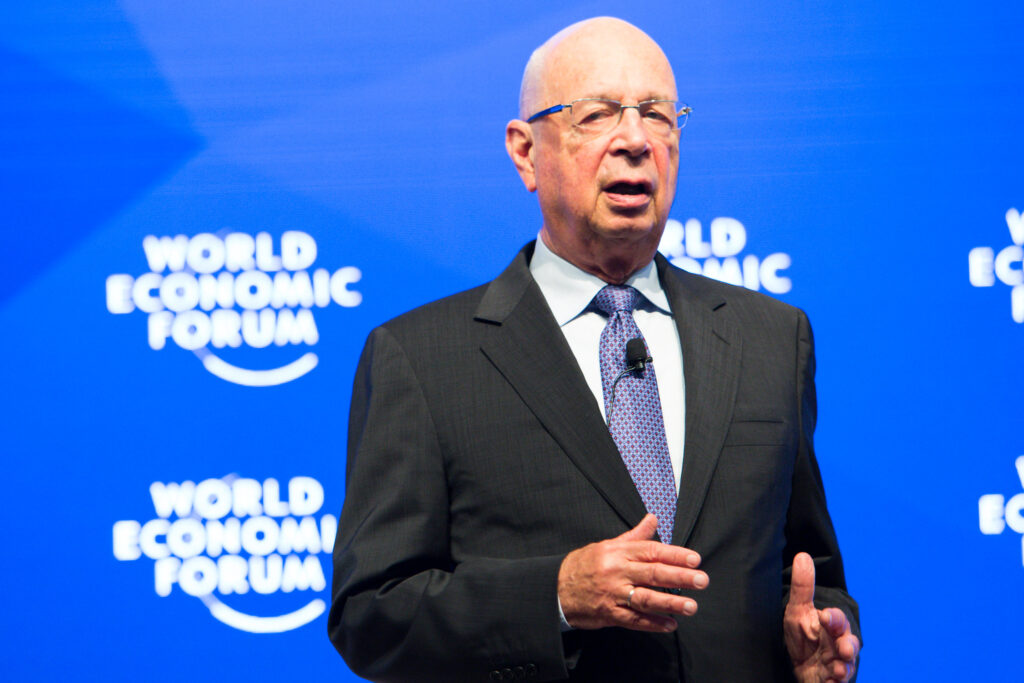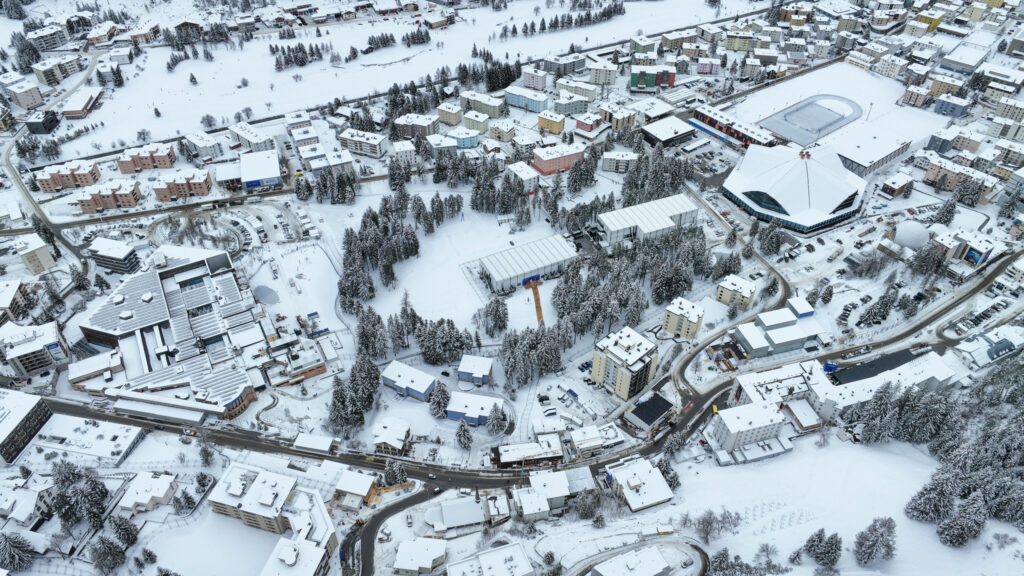The International Organization for Migration (IOM), working in partnership with the national, and provincial disaster centers, are distributing food rations to households affected by election related violence in Enga, Southern Highlands, Hela and Jiwaka provinces.
The relief efforts were made possible through financial assistance from the USAID Bureau for Humanitarian Assistance.
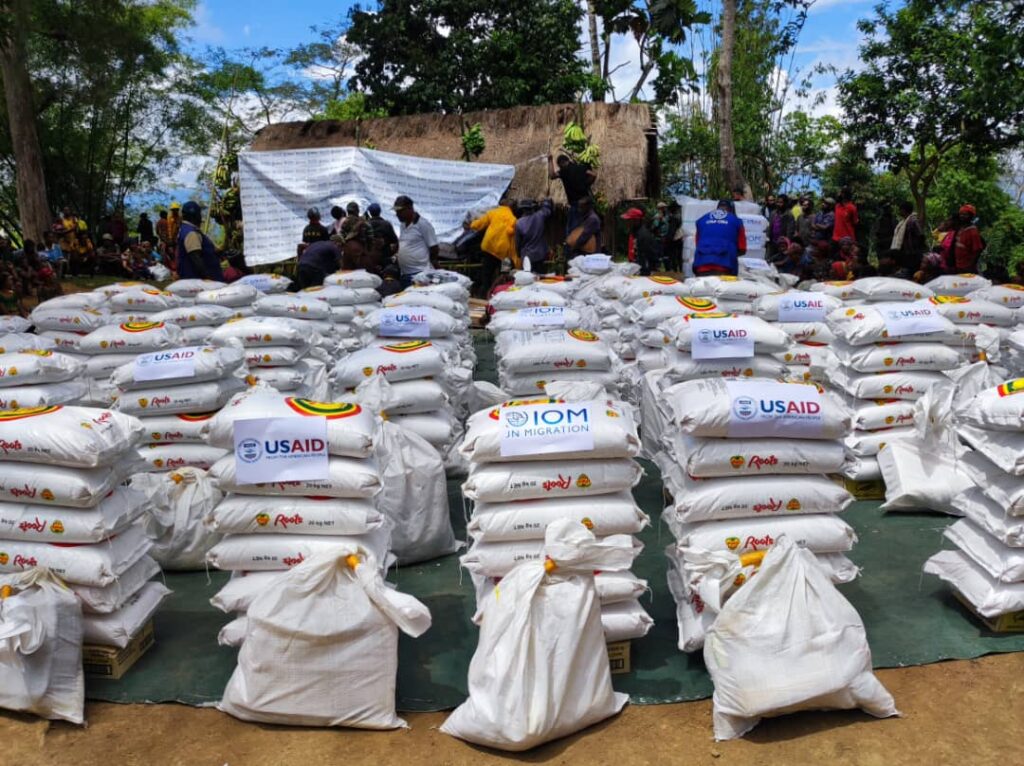
Last week, Food rations of rice, cooking oil, tinned fish, sugar, and salt have been distributed to over 700 households comprising of over 3900 people.
It has been over a year, since the Election-related violence broke out in various provinces, mainly in the Highlands region.
Food crop gardens and shelters were destroyed, which affected the livelihoods of women, children, people living with disabilities and the elderly.
The relief efforts target households headed by women and the elderly, especially those hosting people living with disability.
These homes were identified through IOM’s displacement tracking matrix information.
Community leaders and women from these areas shed tears as they noted the hardships that affected groups were dealing with. Especially in providing meals for their families.
“It will take months for us to replant and harvest our crop fields destroyed during the fight. Providing enough food for families has been difficult and we are thankful to USAID and IOM for this assistance,” said Mambu Gene, a women’s representative.
“We faced several difficulties and several families had to skip meals. We did not have enough money to buy food and this help is appreciated,” she added.
Jiwaka Provincial Disaster Coordinator, John Kupul extended his thanks to the people and government of the United States for supporting affected communities. He appreciated the partnership of IOM and Jiwaka Provincial Disaster Centre, made possible through funding from the USAID/BHA.
Kupul noted that this partnership will go a long way to improve the lives of the most vulnerable populations. “This partnership has saved lives,” he said.
